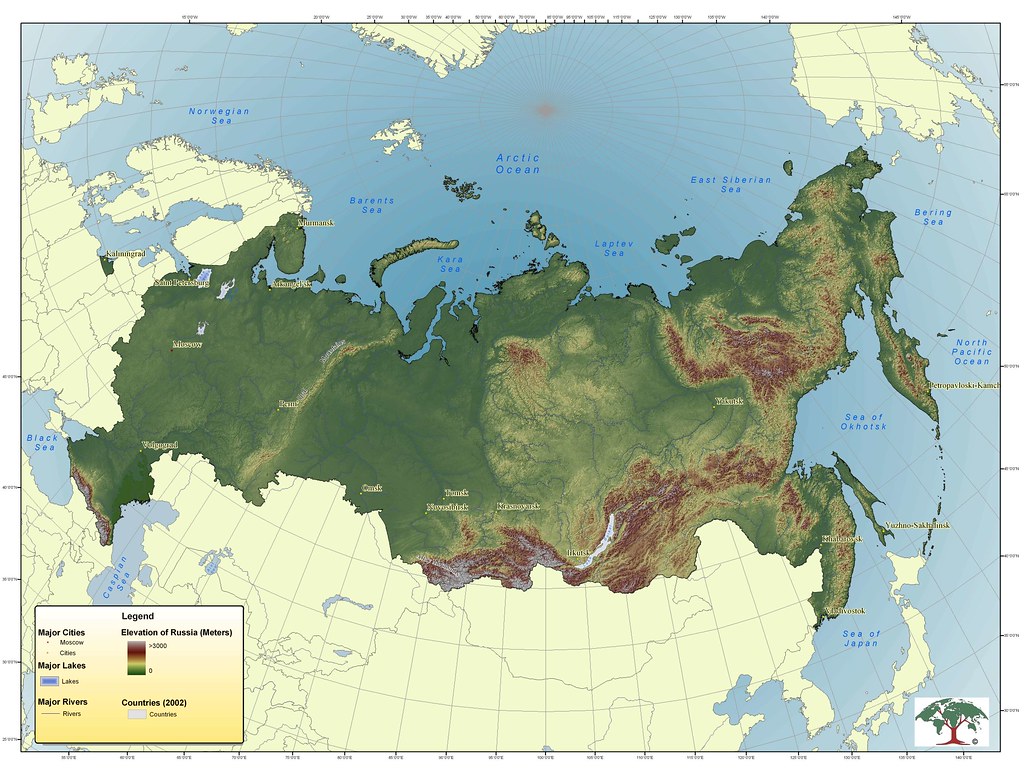“A great leader who has an army has one hand, but he who has a navy has two.” – attributed to Peter the Great
At first glance, Crimea and Syria seem to have little in common. Aside from both being the sites of intense contemporary conflict, one is a peninsula in Eastern Europe torn between pro- and anti-Russian actors and the other is a Middle Eastern state engaged in a bitter civil war. But both are vital to Russia’s strategic interests. Why? Naval power.
Naval power is critical to national power. Take the example of Great Britain. Throughout the 19th century Great Britain was the foremost naval power of the world, and also happened to be building the largest empire in history. In fact, with few exceptions, all great empires of history had access to the sea, from the European colonial empires of the modern era to the Roman Empire of classical antiquity. In the contemporary world, research suggests that landlocked countries tend to be poorer than their maritime neighbours; they rely on said neighbours for their external trade, for which they pay high transaction costs. Access to the sea, therefore, is critical to national power.
Russia – a country 17.1 million km2 in size, with a population of 143.5 million and straddling two continents – has notoriously poor access to the sea. The White Sea is frozen between October/November and May/June. Russia has access to the Baltic Sea, but it has to pass the straits of Denmark – a NATO Member – in order to exit. Russia has a Pacific fleet, but obviously this fleet is remote from the Mediterranean and the Atlantic. The solution? Crimea and Syria.

Russia spans two continents, but its access to warm-water ports is notoriously poor. (Image: Flickr)
In Crimea, courtesy of the Kharkiv Pact and various treaties that pre-dated said pact, Russia used to lease the naval port of Sevastopol from Ukraine, giving it access to the Black Sea and, with it, access to the Mediterranean, albeit via the Straits of Turkey. Indeed, the aviation and infrastructure capabilities of Russia’s Black Sea Fleet are based in Crimea. Russia utilised the Black Sea Fleet in its wars against the Ottomans during WWI, the Romanians during WWII and Georgia during the 2008 South Ossetia War. Sevastopol, therefore, is crucial to Russia’s strategic interests. That’s why when Ukraine moved to end Russia’s lease of the port, Russia intervened and swiftly annexed Crimea in March 2014. To quote Orlando Figes:
‘Crimea was bound to be the focus of the Russian backlash against the Ukrainian revolution. … For more than 20 years, ever since the collapse of the Soviet Union, its rule by Kiev has been a major source of Russian resentment – inside and outside Crimea – and a major thorn in Ukraine’s relations with Russia.’
The Russian Federation now has full control of the Crimean Peninsula and, with it, the naval port at Sevastopol, maintaining Russia’s access to the Black Sea and the Mediterranean.
And Syria? Russia leases a naval port at Tartus from the Syrian government. Tartus is the Russian Navy’s only Mediterranean repair and replenishment location, sparing Russia’s warships the journey back to their Black Sea bases through the Turkish Straits (Turkey being another member of NATO). Through Tartus, Russia enjoys direct naval access to the Mediterranean and, with that, access to the Atlantic. Unsurprisingly, the Russian government have utilised the Tartus base to bolster the al-Assad regime against rebel forces.
Naval power is critical to national power
In both conflicts, therefore, Russia’s strategic interests are at stake. It is in Vladimir Putin’s interests that Crimea remains a part of the Russian Federation, and not of Ukraine, so that the Black Sea Fleet remains intact; it is also in his interests that the Syrian government remains in power in Syria, so that Russia retains its naval base at Tartus.
Is the retention of naval power the only reason for Russian involvement in the conflicts in Crimea and Syria? No. The conflicts are more complex than that. But in both cases, if Crimea remains part of the Russian Federation and if the regime of Bashar al-Assad remains in place, Russia finds its naval capabilities far superior to what they were mere years ago.
Crimea and Syria are but pawns on the chessboard of great power politics.


